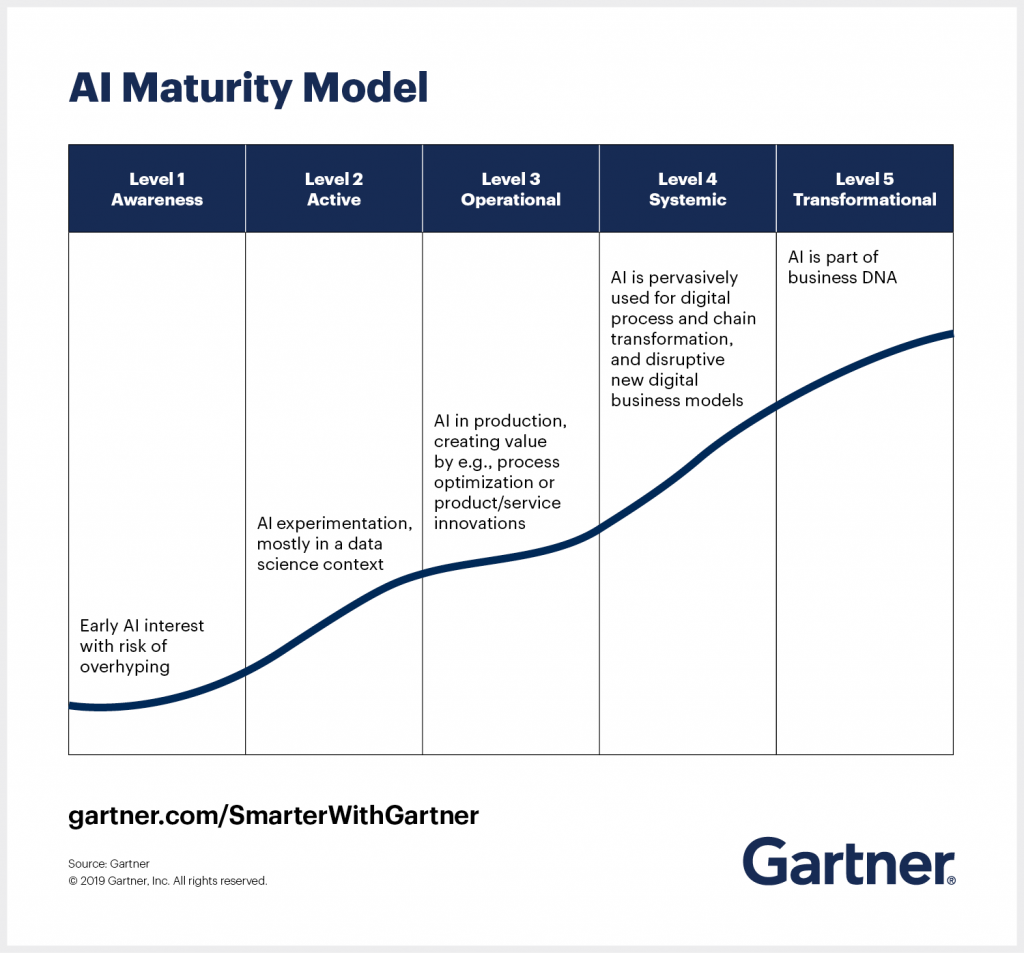AI MATURITY STARTS WITH YOU
Having a roadmap to guide your company to the next stage of AI maturity could be worth billions of dollars to your company, in new revenues as well as cost savings.
You need to be ready to craft your own AI strategy and roadmap, specific not only to your organization's maturity level but also your position, team, industry, tech stack, and resources.
Learn what questions to ask and frameworks to use, and become that AI thought leader your company needs. Let us guide you, like we've already guided some of the largest companies in the world.
The journey to becoming an AI-first executive, team, and company starts with you. Let's get started.
"67% of companies reported an increase in revenues and 79% reported a decrease in costs, due to AI adoption"
- McKinsey Tech Trends 2022

The Stages of AI Maturity
AI and machine learning are evolving at warp speeds, with some industries being transformed overnight. Companies ahead of the curve are increasing the size of their competitive advantage with every new data point gathered.
In this new paradigm of generative AI, with tools like ChatGPT on the market, business leaders like you do not have the luxury of a "wait and see" mindset. You have to take action.
The first step is properly identifying where your company is in its AI lifecycle. As Gartner recommends, assessing where you are will help define your strategy.

Let’s identify your organization’s place on the map to give you a sense of direction on where to focus your efforts and your budget to get to the next stage.
Let's Find Your Starting Point
Stage 1: Awareness
An early interest and conversations around AI strategy
Companies at this stage are focused on managing data. They see gains in efficiency and agility with high quality training data. They are experimenting and focused on driving innovation. 60% of organizations rate themselves within Stages 1 and 2.
Stage 2: Active
Initial experimentation and pilot projects with AI
In the early stages of AI adoption, the role of the board and C-Suite play a key role as companies identify use cases of AI within the organization and move into experimentation. As businesses show positive ROI and investments pay off, the role of the business leaders becomes less of a driving factor.
Stage 3: Operational
AI used in at least one workflow
Organizations moves into the Operational phase when AI is in production and demonstrating ROI. In this active stage of AI maturity, they identify the right use cases for AI, and progress with experimentation as projects move from pilot to production. The use of large volumes of annotated data and increased use of semi-supervised learning comes into play.
Stage 4: Systemic
AI is used in the majority of workflows/operations leading inspiring new, digital business models
Companies at the Systemic level are using AI to scale and drive competitive advantage and product innovation. They are budgeting more for AI programs and using both supervised and semi-supervised machine learning methods.
Stage 5: Transformational
AI is inherent in the DNA of the business
Businesses at the Transformational level have benefited from better risk management and are now looking to scale up and accelerate product innovation.